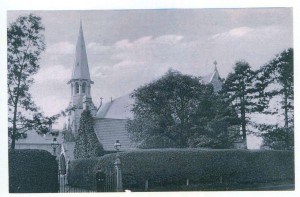The Essex Sound and Video Archive contains a wide range of musical recordings relating to Essex musicians or Essex venues. Here our You Are Hear Project Officer, Sarah-Joy Maddeaux, reflects on the research value of some of the pieces she has enjoyed discovering.
The man that hath no music in himself,
Nor is not mov’d with concord of sweet sounds,
Is fit for treasons, stratagems, and spoils;
The motions of his spirit are dull as night
And his affections dark as Erebus:
Let no such man be trusted. Mark the music.
(Shakespeare, The Merchant of Venice, 5.1.91-7)
At the Essex Sound and Video Archive, we hold a large collection of music recordings, covering a range of genres. We have a particularly strong folk collection, from amateur recordings of folk club evenings to professionally released albums. We also have classical, choral, pop, rock, and songs that defy classification.
Listening to these recordings is a pleasure. The songs can be uplifting, amusing, inspiring – or merely nice background music to help while away the hours. But does the entertainment value of this music justify long-term preservation in climate-controlled conditions? Maybe, but the recordings fulfill other purposes as well.
For starters, they showcase the talent of Essex musicians – or, in some cases, of musicians performing in Essex. We should preserve their work in the same way that local art galleries collect, commission, and display visual art. While we could rely on record labels to keep copies of everything they produce, not all musicians make it that far: a tentative performance at a folk club may be the only time an artist’s work has been captured.
Then, listening to this music in Essex adds extra meaning. What inspired the musicians? What is it about Brentwood that moved Chris Jones to write ‘Brentwood Gavotte’ (Acc. SA140) and Tino Moreno to compose his piece for Brentwood Cathedral Boys’ Choir (SA 19/1/64/1)? Do you hear something different in the music if you listen to it in Brentwood than if you listen in, say, Brentford?
In some cases, we hold oral history interviews recorded with Essex musicians, so you can listen to their life stories alongside their music. For example, you can listen to an interview with Peter Searles (SA 15/1/4/1/1), then listen to music by his band, Mark Shelley and the Deans (SA 15/2/1/4/1). How does this change how you perceive the music?
Lyrics can also give insights into social customs, culture, and working practices of the time in which they were written – not to mention showcasing the transient Essex dialect.
The song ‘Owd Rat Tailed Tinker’ reveals attitudes of Essex ploughmen towards Londoners, who misused their horses and looked down on their country neighbours (SA 24/221/1). Have attitudes changed since this song was recorded in the early twentieth century?
[soundcloud url=”https://api.soundcloud.com/tracks/281658947″ params=”auto_play=false&hide_related=false&show_comments=true&show_user=true&show_reposts=false&visual=true” width=”100%” height=”250″ iframe=”true” /]
The folk song ‘John Barleycorn’ describes the process of harvesting barley and then brewing it into beer (SA 6/305/1). Beneath the personification of the barleycorn, the song reveals what harvest looked like before mechanisation, including men using scythes, pitchforks, cudgels, and millstones.
[soundcloud url=”https://api.soundcloud.com/tracks/160648396″ params=”auto_play=false&hide_related=false&show_comments=true&show_user=true&show_reposts=false&visual=true” width=”100%” height=”250″ iframe=”true” /]
Chris Jones’ song ‘Rayleigh Good Christmas’ describes a typical Christmas scene in Rayleigh in the late twentieth century (Acc. SA140). Among other things, the lyrics mention the shop Woolworth’s, which disappeared from our high streets in 2009. He also refers to people ‘at the bank… queuing for money’. How long before this, too, is a thing of the past?
Future researchers might be puzzled by references to ‘The Sally Army’, but the lyrics will preserve cultural references and informal language less likely to find their way into written documents.
And then, perhaps music goes some way towards preserving the essence of a culture. Would it be too much to claim that the music in our collection presents the spirit of Essex? We will leave you to muse on this question over a motet by sixteenth-century composer Thomas Tallis, possibly written while he was organist at Waltham Abbey, performed here by The Walk Fair Singers in 1993 (SA 1/1287/1).
Some of the music mentioned above cannot be put online for copyright reasons, but it can be played in the Playback Room at the Essex Record Office. Find out more about visiting us, or get in touch for more information. You can also order a copy, so you can listen to your favourite song while doing the housework or driving to work. Search Essex Archives Online for your favourite composer or Essex artist and see what you can discover.


